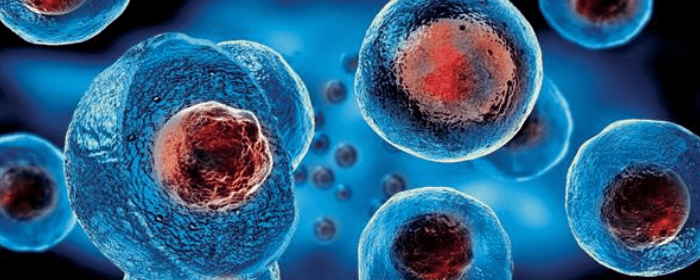Osteoarthritis (OA) is the most common form of arthritis, affecting over 525 million people around the world. Characterized by pain, swelling, and stiffness resulting from the degradation of cartilage that provides cushion and protection between our bones, OA is an inflammatory condition without a clear and effective treatment.
OA most commonly affects the hands, knees, hips, and spine, but ultimately can cause damage to any joint in the body. Currently, most treatments for OA are designed to minimize the symptoms of the condition, not to treat or prevent the condition itself.
In recent years, pre-clinical studies of mesenchymal stem cells (MSCs) have demonstrated to be successful in resurfacing areas of degenerated cartilage and early-phase clinical trials found that intra-articular (IA) administration of MSCs leads to a reduction in pain and improved cartilage protection and healing.
In this review, Mancuso et al. provide an overview of the functions and mechanisms of MSC-secreted molecules found in in-vitro and in-vivo models of OA. Although MSCs disappear from the target area soon after administration, they have been found to demonstrate a rich secretory profile that is enhanced by exposure to inflammatory signals and is still able to deliver immunomodulatory effects.
Mancuso et al. highlight that, although chondrocyte apoptosis has long been associated with OA and despite the fact that there is no conclusive report identifying anti-apoptosis effects associated with MSCs, indirect evidence suggests that they have inhibited of ex-vitro cultured OA chondrocytes. Considering this, the authors recommend future studies of joint-associated MSC anti-apoptotic effects as a way to identify direct mediators of the process.
According to the authors of this review, the role of inflammation in the establishment and maintenance of OA is now widely accepted with synovial membrane inflammation a hallmark of OA pathology. Additionally, the biological markers of inflammation positively correlate with knee pain and clinical progression of OA. Studies have demonstrated that licensed MSCs secrete an array of anti-inflammatory cytokines which can help re-establish an equilibrium in the inflamed synovium and reduce inflammation in joints affected by OA.
After being administered, MSCs tend to undergo biological changes more radical than differentiation or licensing, with most completely disappearing 10 days post-injection. However, even after this occurs, there have been significant therapeutic effects observed.
Researchers have found that these apoptotic MSCs communicate with immune cells both directly and indirectly with patient responsiveness to MSCs correlating with their cytotoxic capacity. Mancuso et al. conclude that these findings provide evidence that apoptosis is one of the driving mechanisms of MSC-mediated immunosuppression.
Findings also suggest that the paracrine action of MSCs is not limited to soluble factors and has been shown to produce extracellular vesicles (ECVs). In pre-clinical models, ECVs have been observed to have anti-apoptotic, anti-fibrotic, pro-angiogenic, and anti-inflammatory effects. In addition, these ECVs – when derived from MSCs – inhibit the proliferation of lymphocytes, macrophages, and B cells.
MSC-derived ECVs have shown to be promising in rat models of osteoporosis and have recently been tested in OA animal models with promising results. The authors point out that while further study is required, the initial findings indicate that the use of MSC-ECVs in therapy designed for OA would bring many advantages when compared to cell-derived products. The authors also point out that several issues with ECVs still have to be considered, including the need for them to be specifically tailored for the specific indication being treated.
Mancuso et al. conclude that MSCS has already proved to be a valuable tool for many conditions and there is significant potential for their use in OA. Phase I clinical trials have established that the direct IA administration of MSCs in OA patients is safe and pain reduction and increased cartilage thickness have been observed after injection. However, they also call for additional studies to examine the role of cell death in mediating the therapeutic effects of MSCs.
Source: Mesenchymal Stem Cell Therapy for Osteoarthritis: The Critical Role ….” 11 Jan. 2019, https://www.frontiersin.org/articles/10.3389/fbioe.2019.00009/full.


 St. Petersburg, Florida
St. Petersburg, Florida
